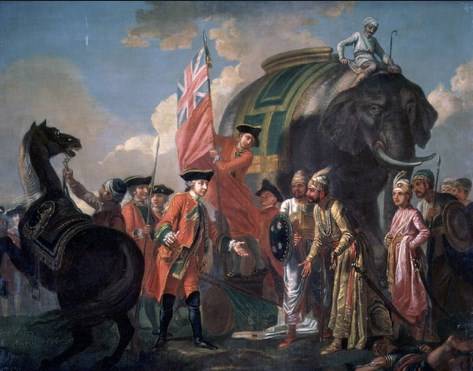That sounds about right to me. The British at the time had a very large empire and India was a vital part of it. It also gave them sea ports for trade and to keep warships about in case of trouble.
There were two main reasons for the interest of British in India. Firstly the highly profitable trade with India. Secondly, the strategic importance of India which meant they could keep an eye on their possessions in Middle East and Far East? Correct?
India was important to the spice trade. There was also trade to be made in fabrics and gemstones and precious metals. Curiously enough, India was not THAT strategically important. British possessions with better facilities for warships existed all around the Indian Ocean. Deep water ports are rare in India (a problem that the Indian Navy still has to cope with). The ability to garrison India with fighting men was important however. Even at the height of British involvement, the ex-patriot army never exceeded 160,000 men. India was also important as a source of manpower, therefore. This is a very difficult question to answer.
